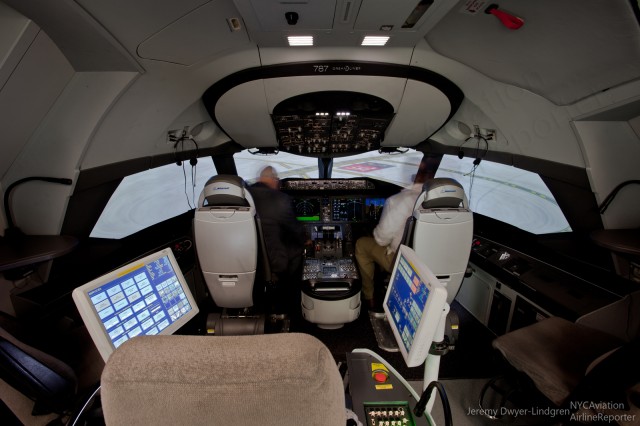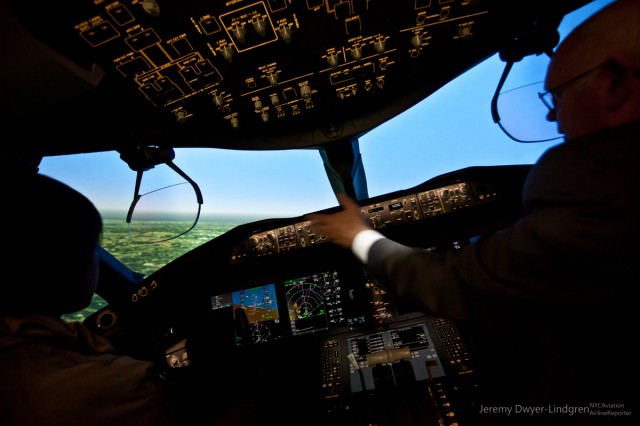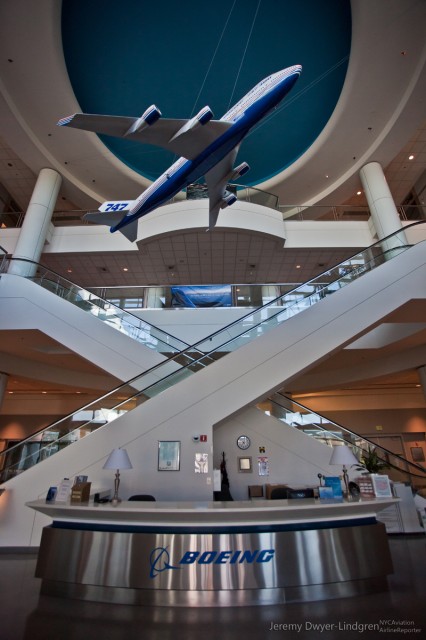
The enterance to the Boeing Flight Services in Seattle, WA. Photo by Jeremy Dwyer-Lindgren / NYCAviation.com
Boeing Flight Services (BFS) offers eight locations around the world that provides pilot, maintenance, composite and cabin crew training. Around the world, Boeing offers 80 flight simulators (eight are for the 787). The locations for the 787 training facilities are located in London, Singapore, Shanghai, Tokyo and of course Seattle. We recently had the opportunity to take a behind the scenes look at the pilot training part of the BFS facility located south of Seattle,WA.
Currently, Boeing has orders for 873 787 Dreamliners. For each new aircraft that gets delivered, there need to be pilots, technicians and flight crew that require training. Boeing works with their airline customers to provide a customized training package. They can choose to have their entire staff trained, or just a handful of trainers who return to the carrier armed with all the knowledge they need.
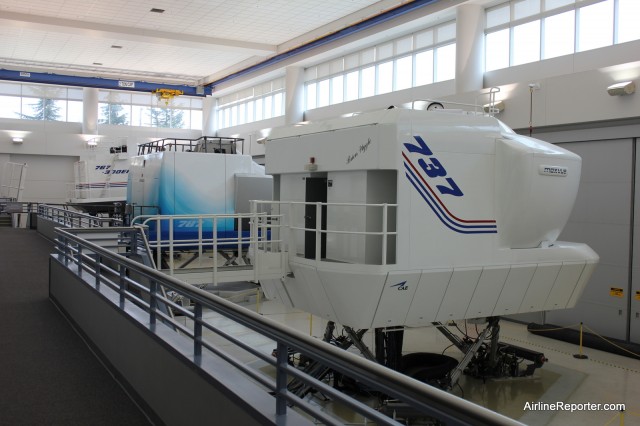
The room we were in had four simulators. Two for the 787, one for the 737 and one for the 767. Notice how they are painted in different Boeing liveries. Photo by David Parker Brown / AirlineReporter.com
How long it takes for a new pilot to be trained on the 787 depends on their previous experience. Since the 777 and 787 cockpits are so similar, it only takes pilots five days to be trained on the Dreamliner. A pilot who has flown other Boeing products (like the 767 or 737), it can take 13 days and if a pilot has never flown a Boeing product, it takes 20 days.
The section of the facility we visited held four simulators: two for the 787, one for the 737 and one for the 767. Before getting into full simulator, pilots will start out on a desktop simulation, which students are able to view a 3-D virtual 787 to learn about the aircraft before taking the controls.
Next, pilots move to the flight training device that looks like a desk-mounted simulator and lets the flight crew become familiar with the instruments and airplane systems better before hitting the fully operation simulator.
Before each flight in the full simulator, pilots will sit down with their Boeing instructor to go over the details and expectations of the flight. Boeing flight instructors, on average, have 15,700 total time and at minimum, they are required to have at least 5,000 hours with 1,000 of those in training.
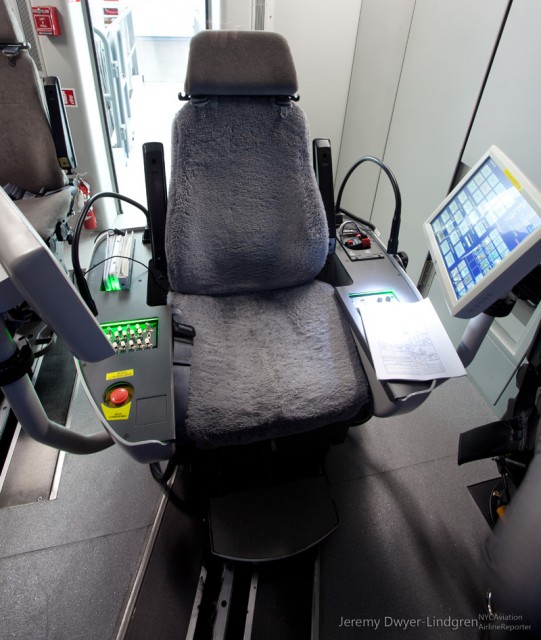
The flight instructor's chair inside the Dreamliner flight sim. Photo by Jeremy Dwyer-Lindgren / NYCAviation.com.
Pilots normally fly for four hours in the simulator and afterwards, trainers will go step-by-step with the pilots using playback from the simulator.
When entering the simulator, the first thing that stands out is the large chair in the middle of everything. The chair appears more at home on the bridge of the Starship Enterprise than the simulator we’re standing in. The chair, affectionately called ’œCaptain Kirk’s Seat’, is where the instructor is direct and manage the simulation along with being able to see the same visualization that the pilots are.
Due to the number of media on the tour the full motion capability was switched off, but that did not stop from making the experience enjoyable. Flight instructor Captain Greg Beard pressed a few buttons on the trainer chair and everyone was whisked away at the speed of light to Narita International Airport in Tokyo. Capt. Beard sat in the co-pilot seat as he smoothly took off the Dreamliner to take a tour around Tokyo.
Being in a few 787 cockpits (not during flight), it is easy to say that the simulator is very accurate to the actual Dreamliner. Beard confirmed this by explaining that all the same software and options on the actual aircraft are in the simulator ’“ actually there are more. The simulator can be programed to have either the GEnx engines or RR Trent 1000 (there are few differences in the flight deck of the two). The simulator can also be used for the future 787-9 model as well.
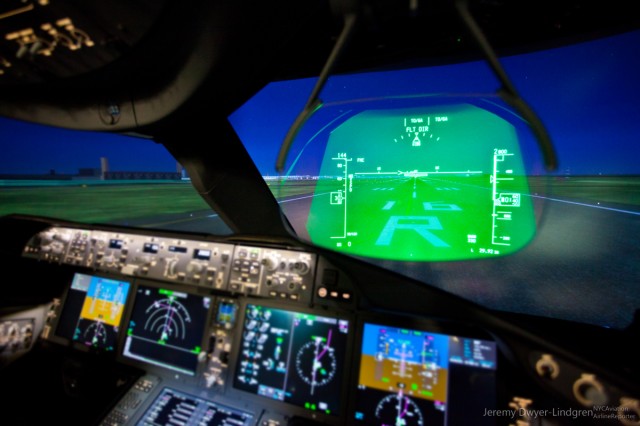
A view of the HUD (heads up display) while sitting at Seattle-Tacoma International Airport. Photo by Jeremy Dwyer-Lindgren / NYCAviation.com.
Although the Boeing 787 is a complex machine, it has been built to make flying as easy as possible. It is not cheap to purchase your own 787 simulators. They are manufactured by Thales, cost about $15-$18million each.
SEE ALL 43 PHOTOS OF THE BOEING 787 DREAMLINER FLIGHT SIMULATOR
This story was a joint effort by AirlineReporter.com and NYCAviation.com.
